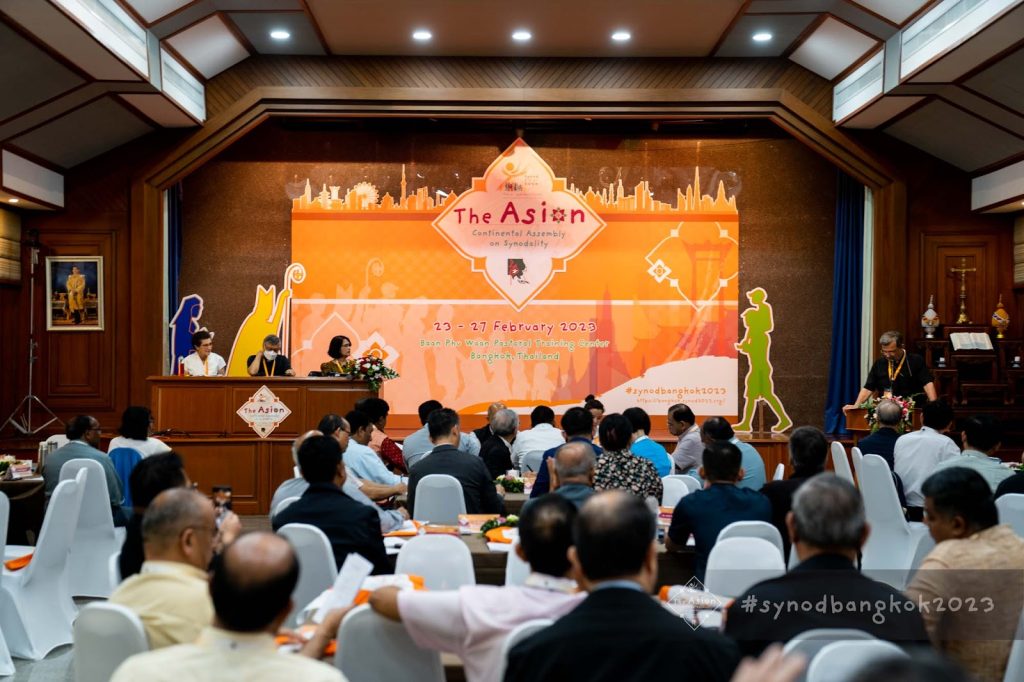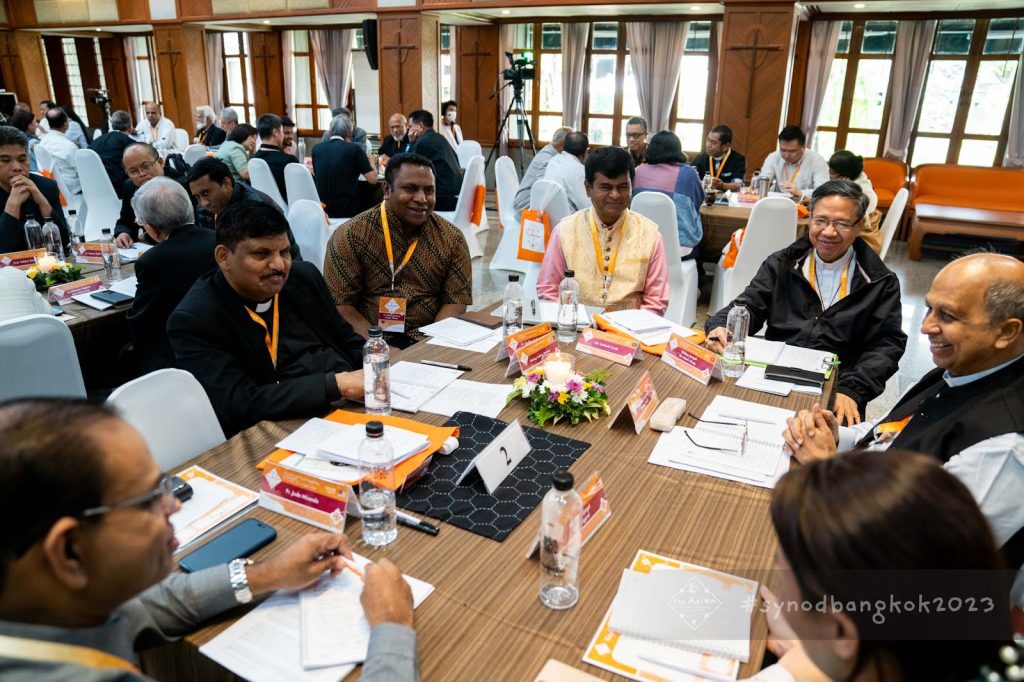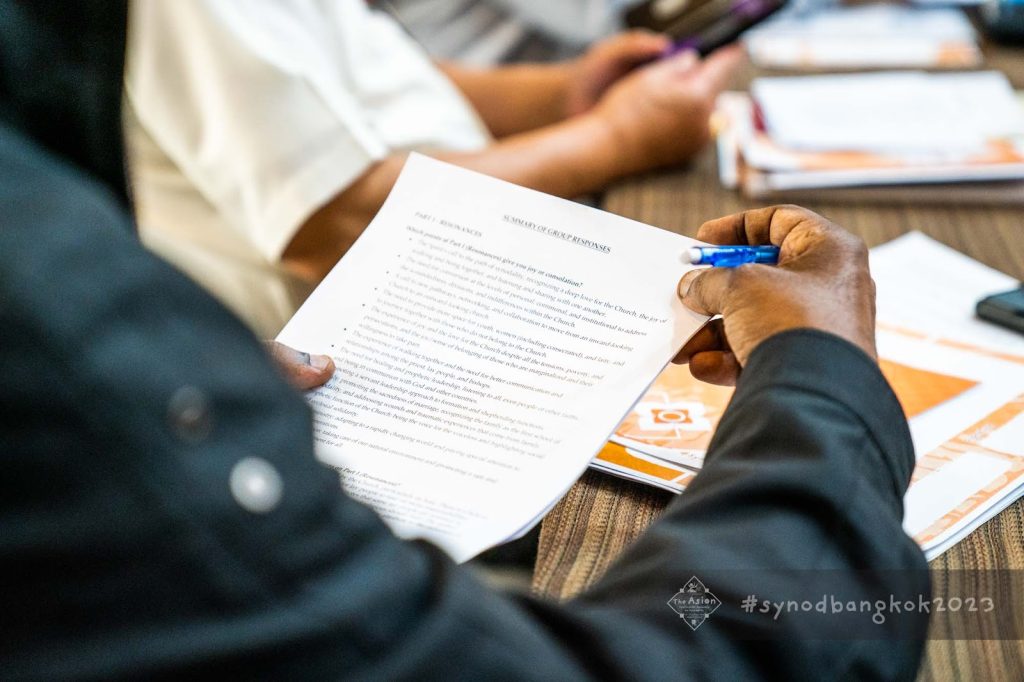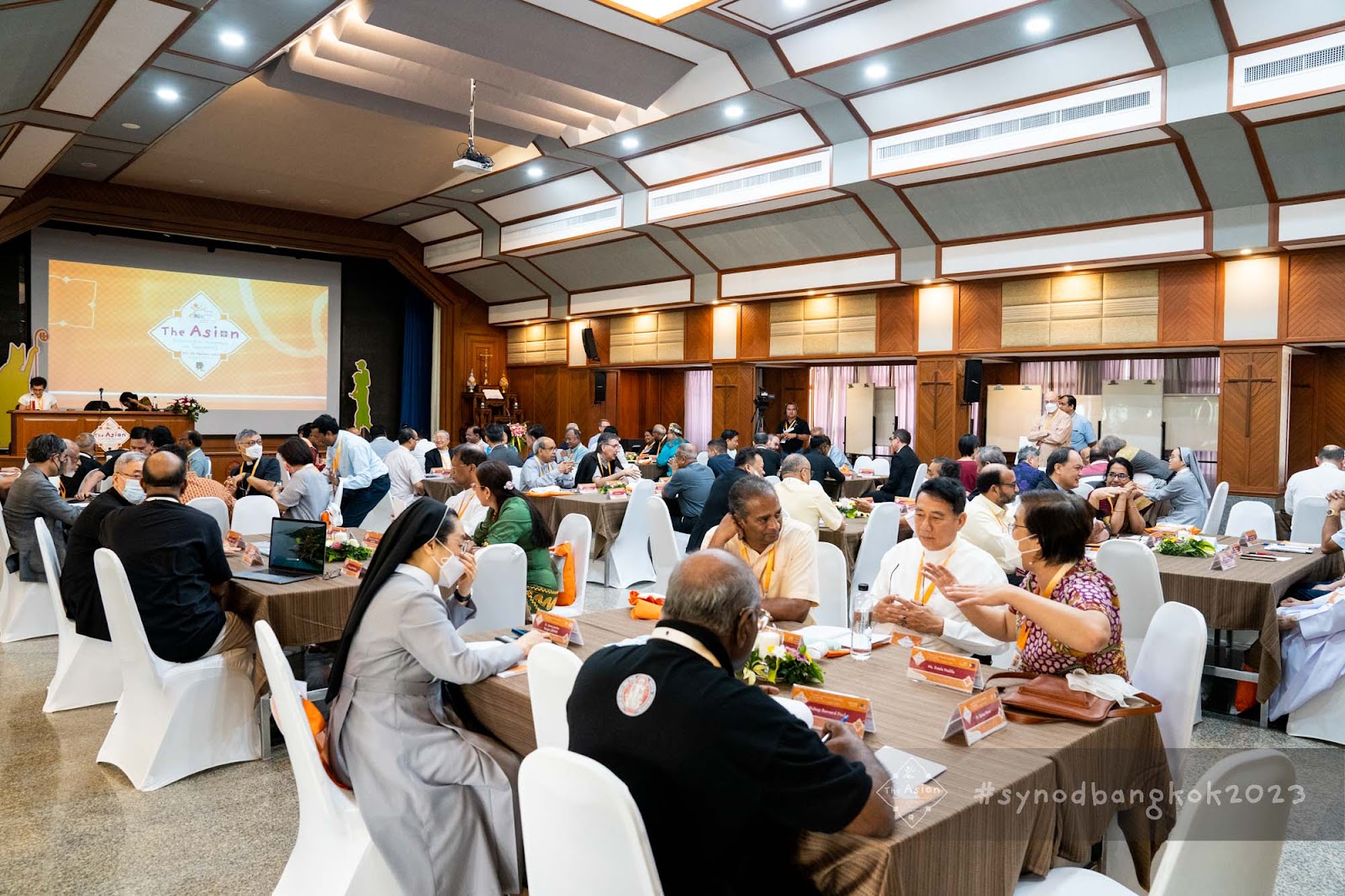The continental phase of the Catholic Church’s synodal process in Asia ended with a call for transformation in the weekend.
“If we are walking together to bring about a renewal in the life of the Church, we need the transforming power of the Holy Spirit as by ourselves we cannot achieve anything,” said Cardinal Charles Maung Bo of Yangon in his homily during the final day of the meeting in Thailand on February 26.
The prelate, who heads the Federation of Asian Bishops’ Conferences, said that everyone is called “to hear what the Holy Spirit is telling to us.”
“We are always in need of God’s transforming grace as we walk together in this synodal journey ‘to serve Him alone,’” Cardinal Bo told delegates to the assembly.
He said “the synodal journey is relatively like Jesus’ journey in the wilderness, challenging but necessary because it enables the Church to better witness to the Gospel through a process of listening, encountering, and discerning.”
The Asian Church leader said a “change of attitude is required” in facing the challenges.
“If this journeying together is to be meaningful, we need to learn how to let go of all that prevents us from being that synodal church as shedding is a pre-requisite for growth,” he said.
He said “journeying on the path of discipleship” has a specific goal, that is, “to encounter Christ.”

The cardinal reiterated the call of Pope Francis to a “culture of encounter,” which is “an invitation to work in a simple way ‘as Jesus did,’ not just seeing, but looking; not just hearing, but listening; not just passing people by, but stopping with them; not just saying ‘what a shame, poor people!’ but allowing one’s self to be moved with compassion.”
Cardinal Bo said “neighborliness” is also important, noting that in Asia, “we are a minority and we live amidst social, political, and religious tensions.”
“Despite such tensions, we (are) called to help our brothers and sisters in need,” he said.
Cardinal Jean-Claude Hollerich, SJ, archbishop of Luxembourg and Relator General of the XVI Ordinary General Assembly of the Synod of Bishops, reminded the delegates that like musical instruments, they need “to function in unison, to produce a symphony.”
He said it has to be done repeatedly, with discipline, and in tune with others, “lest it turns into a cacophony.”
The cardinal also stressed that synodality requires humility, “and it is only in humility can we work and walk together on this journey.”
Cardinal Mario Grech, secretary general of the Synod of Bishops, assured the delegates of the three meeting that their journey and their contributions “will not be forgotten.”
He earlier reminded the delegates “to be more attentive to the voices within the Church,” saying they are “all learners in synodality.”

About a hundred Church leaders from across Asia gathered for the continental phase of the synodal process in Thailand from February 24 to 26.
The continental assembly is tasked to “reread the journey made” in the synodal process that started in 2021 and “to continue the listening and discernment” according to the “socio-cultural specificities” of the respective regions.
In 2021, Pope Francis launched the “Synod on Synodality” as a worldwide undertaking during which Catholics were encouraged to submit feedback to their local dioceses.
In his address to the Asian assembly, Cardinal Grech stressed that “a synodal Church is a Church of listening,” adding that the success of the process depends on the active participation of the people.
He said the “proper exercise” of synodality should not put the people and their pastors in competition with each other, but in constant consultation, allowing each other to exercise their respective roles.
“Consultation in Churches has enabled the people of God to implement the right way of participating in the Prophetic function of Christ,” said the cardinal.
He warned against using the phrase “a synodal Church is a Church of listening” as a rhetorical phrase, instead it should “portray the truth that it is.”
Discussions at the continental assemblies were guided by a 44-page working document officially called the DCS (Document for the Continental Stage).
The text calls for “a Church capable of radical inclusion” and says that many local synod reports raised questions about the inclusion and role of women, young people, the poor, people identifying as LGBTQ, and the divorced and remarried.

Church leaders were also reminded that the themes proposed in the document guiding the synod’s continental phase discussions “do not constitute the agenda” for the Synod of Bishops assembly in October.
The continental assemblies are reminded to identify “the priorities, recurring themes, and calls to action” that will be discussed during the first session of the Synod of Bishops from October 4 to 29 this year.
Each Continental Assembly is required to submit a final document of no more than 20 pages providing the region’s response to three reflection questions based on the DCS by March 31:
- Which intuitions resonate most strongly with the lived experiences and realities of the Church in your continent? Which experiences are new or illuminating to you?
- What substantial tensions or divergences emerge as particularly important in your continent’s perspective? Consequently, what are the questions or issues that should be addressed and considered in the next steps of the process?
- Looking at what emerges from the previous two questions, what are the priorities, recurring themes, and calls to action that can be shared with other local Churches around the world and discussed during the First Session of the Synodal Assembly in October 2023?
- The final, universal phase of the Synod on Synodality will begin with the XVI Ordinary General Assembly of the Synod of Bishops at the Vatican in October 2023 and continue in October 2024.
The feedback from the seven Continental Assemblies on the Document for the Continental Stage (DCS) will be used as the basis for another instrumentum laboris, or working document, that will be completed in June 2023 to guide the Synod of Bishops’ discussion.







